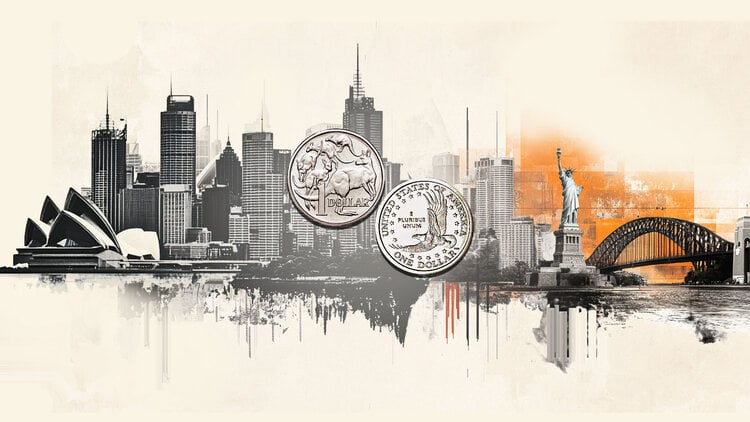Voters across Europe voted this Sunday (9) for the European Parliament election, which will likely lead the assembly to position itself further to the right, increasing the number of nationalists skeptical of the bloc.
The likely change of position means that the assembly may become less committed to climate change policies, while at the same time being more enthusiastic about measures to limit immigration into the European Union, a bloc made up of 450 million of citizens.
The election could also increase the fragmentation of parliament, which would make the approval of any measure more complicated and slower, as the European bloc faces challenges such as hostility from Russia and increasing industrial rivalry between China and the United States.
“I don’t always agree with the decisions that Europe makes,” said retiree Paule Richard, 89, after voting in Paris. “But I still hope that there will be a reckoning between all European countries, so that Europe can be a unified bloc and look in the same direction.”
Voting began on Thursday (6) in the Netherlands and continued to other countries on Friday (7) and Saturday (8), but most voters voted this Sunday (9), when France, Germany, Poland and Spain will open their polls and Italy will hold the second day of voting.
The European Parliament is responsible for voting on the most important legislation for citizens and businesses in the European Union, which is made up of 27 countries.
However, for many years, voters across the bloc have complained that EU decision-making is complex, distant and disconnected from everyday reality, which explains the low turnout in these elections.
“People don’t know who really has the power, between the Commission and Parliament,” said Emmanuel, another French voter, at a polling station north of Paris. “And the truth is that this raises questions and generates distrust, which today might not exist if things were clearer,” said the 34-year-old programmer.
Opinion polls project that the center-right European People’s Party (EPP) will remain the largest group in the European Parliament, which would guarantee a second term for the president of the European Commission, Ursula von der Leyen, of Germany.
However, she may need the support of some right-wing nationalists, such as Italian Prime Minister Giorgia Meloni’s Brothers of Italy party, to secure a parliamentary majority, which will give Meloni and his allies more influence.
Ballot box
A projection by pollster Europe Elects on Sunday showed that the EPP could win five seats compared to the current parliament line-up, winning a total of 183 seats. The Socialists, which include German Chancellor Olaf Scholz’s party, are expected to lose four seats and take 136.
The European Green Party faces rejection from farming families and industry due to the European Union’s expensive policies limiting CO2 emissions, and therefore appears to be among the big losers. This Sunday’s survey (9) indicates that they should only have 56 deputies, which represents a loss of 15 seats in parliament.
Forecasts related to the liberal group Renew Europe are also gloomy, given the expectation that the far-right party Rassemblement National, of congresswoman Marine Le Pen, will defeat the centrist party Renaissance, of French President Emmanuel Macron, in France.
Sunday’s survey (9) indicates that the Renew group will lose 13 seats, predicting that the party will end up with 89 seats.
In contrast, the poll said the national-conservative group ECR would likely get five more seats, totaling 73, and the far-right group ID could win eight more seats, totaling 67.
According to the research, more deputies could join right-wing and far-right groups among the hitherto unaffiliated deputies; Today, they have 79 parliamentarians.
Turn right
Hit by inflation, many voters are concerned about migration and the costs related to the ecological transition. Furthermore, voters show that they are uncomfortable with geopolitical tensions, such as the war in Ukraine.
Far-right and right-wing parties took advantage of this and offered the electorate an alternative.
“Anyone who believes that we need a change of direction and that things can be done much better in Brussels has only one alternative, which is Vox,” said the main candidate of the far-right Spanish party, Jorge Buxade, after voting in Madrid .
In the Netherlands, exit polls on Thursday showed that nationalist Geert Wilders’ anti-immigration party is expected to win seven of the 29 Dutch seats in the EU Parliament, following its big victory in last year’s national elections.
In 2019 the party had not won any seats.
This leaves Geert Wilders’ Freedom Party with just one seat less than the Democratic Socialist-Green Party alliance.
In Belgium, voters will also elect the federal and regional chambers this Sunday (9), and the forecast is that the far-right Flemish separatist party, Vlaams Belang, will have a record number of votes, although it could still be out of power due to to other parties.
Source: CNN Brasil
Bruce Belcher is a seasoned author with over 5 years of experience in world news. He writes for online news websites and provides in-depth analysis on the world stock market. Bruce is known for his insightful perspectives and commitment to keeping the public informed.







